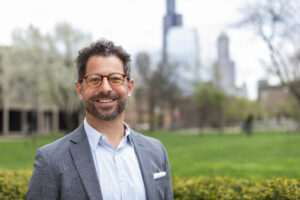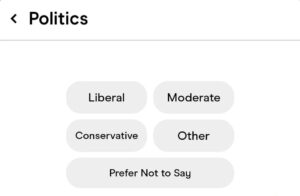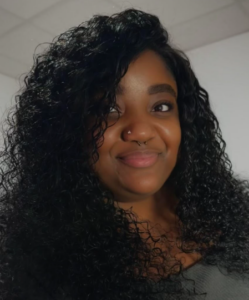The number of books in the home correlates strongly with children’s reading achievement levels, but the disparity in book ownership levels across income groups is striking.
The national organization First Book cites a recent study showing that in middle-income neighborhoods, the ratio of books to children is 13 to 1; in low-income neighborhoods, there is one age-appropriate book for every 300 children.
According to First Book, 80 percent of preschool and early education programs serving children from low-income families have no age-appropriate books.
Since 1992, First Book has collected new books donated by major publishers and distributed over 50 million to low-income children in 3,000 communities via Head Start programs, libraries, soup kitchens, churches and other centers.
First Book recently established a Chicagoland advisory board, which is now reaching out to teachers and directors of early education and after-school programs -along with teen groups, tutoring programs, and ESL classes (some bilingual books are available)-to participate in the program.
Each child in a participating program will receive several books throughout the year, so they can start their own home libraries.
“Having a book in your own hands and actually owning it is a big step toward becoming interested in reading,” said Peter Gray of Illinois Action for Children, who co-chairs First Book-Chicagoland’s advisory board.The number of books in the home correlates strongly with children’s reading achievement levels, but the disparity in book ownership levels across income groups is striking.
The national organization First Book cites a recent study showing that in middle-income neighborhoods, the ratio of books to children is 13 to 1; in low-income neighborhoods, there is one age-appropriate book for every 300 children.
According to First Book, 80 percent of preschool and early education programs serving children from low-income families have no age-appropriate books.
Since 1992, First Book has collected new books donated by major publishers and distributed over 50 million to low-income children in 3,000 communities via Head Start programs, libraries, soup kitchens, churches and other centers.
First Book recently established a Chicagoland advisory board, which is now reaching out to teachers and directors of early education and after-school programs -along with teen groups, tutoring programs, and ESL classes (some bilingual books are available)-to participate in the program.
Each child in a participating program will receive several books throughout the year, so they can start their own home libraries.
“Having a book in your own hands and actually owning it is a big step toward becoming interested in reading,” said Peter Gray of Illinois Action for Children, who co-chairs First Book-Chicagoland’s advisory board.
The group hopes to donate about 5,000 books starting later this year, Gray said. Applications for book grants are due March 14.
The group hopes to donate about 5,000 books starting later this year, Gray said. Applications for book grants are due March 14.
Categories:
Public Schools & Education
Tags:
chicagoland first book literacy reading






Be First to Comment